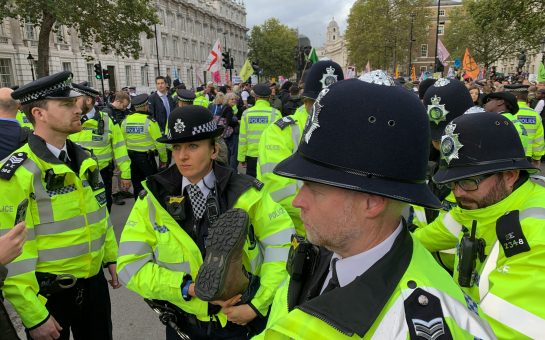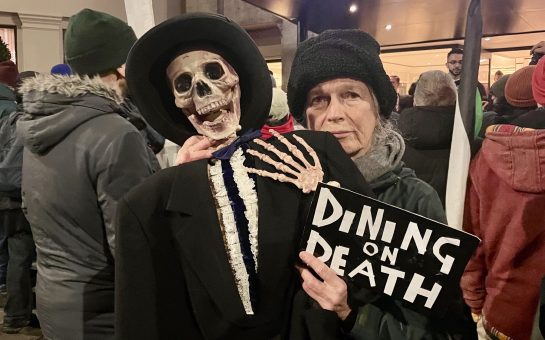By Imogen Smith
March 5 2020, 18.10
Follow @SW_Londoner
Police figures are missing at least a thousand girls who are at risk from youth violence and gang crime across London, according to a report published last month.
The Metropolitan Police’s Gangs Matrix – used to identify gang members and those at risk of victimisation – recorded 2,546 men and boys and only six girls as of December 31, 2019.
The report, titled Gang Associated Girls: Supporting young women at risk’, revealed that 1,049 women and girls in London had gangs identified as a risk factor during assessments carried out by council children’s services.
Florence Eshalomi, the Vauxhall MP who published the report, sent Freedom of Information requests to all London councils.
Only 21 of 32 responded, leading Ms Eshalomi to believe the number of girls and women at risk from gang association is ‘actually a lot higher’.
A Met Police spokesperson said: “The Gangs Violence Matrix is by no means an exhaustive list of everyone linked to gangs in London; we are confident that the large majority of street gang members are male, but we recognise that there are girls and young women that are either active gang members, or have some association with gangs and their criminal activity”.
In nine London boroughs, no female victims of gang violence were identified in the first nine months of 2019, according to the report.
On a visit to St Giles Trust, a charity providing peer led services to young people caught up in gangs, Ms Eshalomi spoke with youth workers about a police stop and search carried out with a girl present.
She said: “They thought she was just a girlfriend, but actually the police should be asking questions like how is she there, is she involved, is she being held against her will, all those questions need to be asked”.
In response to last week’s call from Lucy Martindale, director of anti-knife crime organisation Operation Shutdown, for more stop and searches targeted at women, Ms Eshalomi cautioned that police must be properly trained: “We’re talking about a group of women and girls who are vulnerable here.”
Trauma from experiencing sexual assault or witnessing violence is not always visible and specialist support available for girls is limited.
Only 30% of local authorities commission services exclusively aimed at girls associated with gangs or serious youth violence.
A spokesperson from St Giles Trust said: “Although their role in serious violence is sometimes less direct than that of boys, their experiences are no less traumatic and specialist help is needed.
“They are often facing serious risks around coercion, abuse and both physical and sexual violence. Often the young women feel they have nowhere to turn to.”
The report calls for Sadiq Khan, the mayor of London, to ensure that funding is available to reflect the scope of issues faced by gang associated girls, and for the Violence Reduction Unit to commission a full strategic needs assessment.
It recommends that the Mayor’s Office for Police and Crime (MOPAC) work with specialist organisations such as Abianda, a social enterprise that works with young women affected by gangs, to develop training for professionals including police officers and youth workers.
A spokesperson from the Met said: “It is recognised that some young women are vulnerable as a result of having relationships with, and exposure to, people involved in gang activity.
“We know that vulnerable young women are sometimes pressured into storing or transporting weapons and guns, and some are at risk of sexual exploitation and violence perpetrated by the gang members they are assisting.
“The involvement of young women in gang-related criminal activity across London is largely hidden and undoubtedly under-reported.
“The Met is working hard to better engage with young people and we work closely with the Mayor’s Office for Police and Crime (MOPAC), local authorities, charities and agencies like Abianda to offer support and divert women away from gang crime.
“Last year, the Met launched The Concern Hub, a multi-agency diversion project aimed at safeguarding young people at significant risk of becoming involved in violence, drugs, or gang activity.
“It is currently only running in south east London as a pilot, but the Met is looking at rolling it out to other boroughs.”
Ms Eshalomi is hoping to begin a dialogue with the Home Office, citing police funding as key.
Ms Eshalomi was clear that this should not be a party-political issue.
She said: “If we are really committed to addressing this issue of violent youth crime and youth violence, we can’t miss out a large segment of people involved, and that’s women and girls.”
Featured image: Caseworker at St Giles Trust




